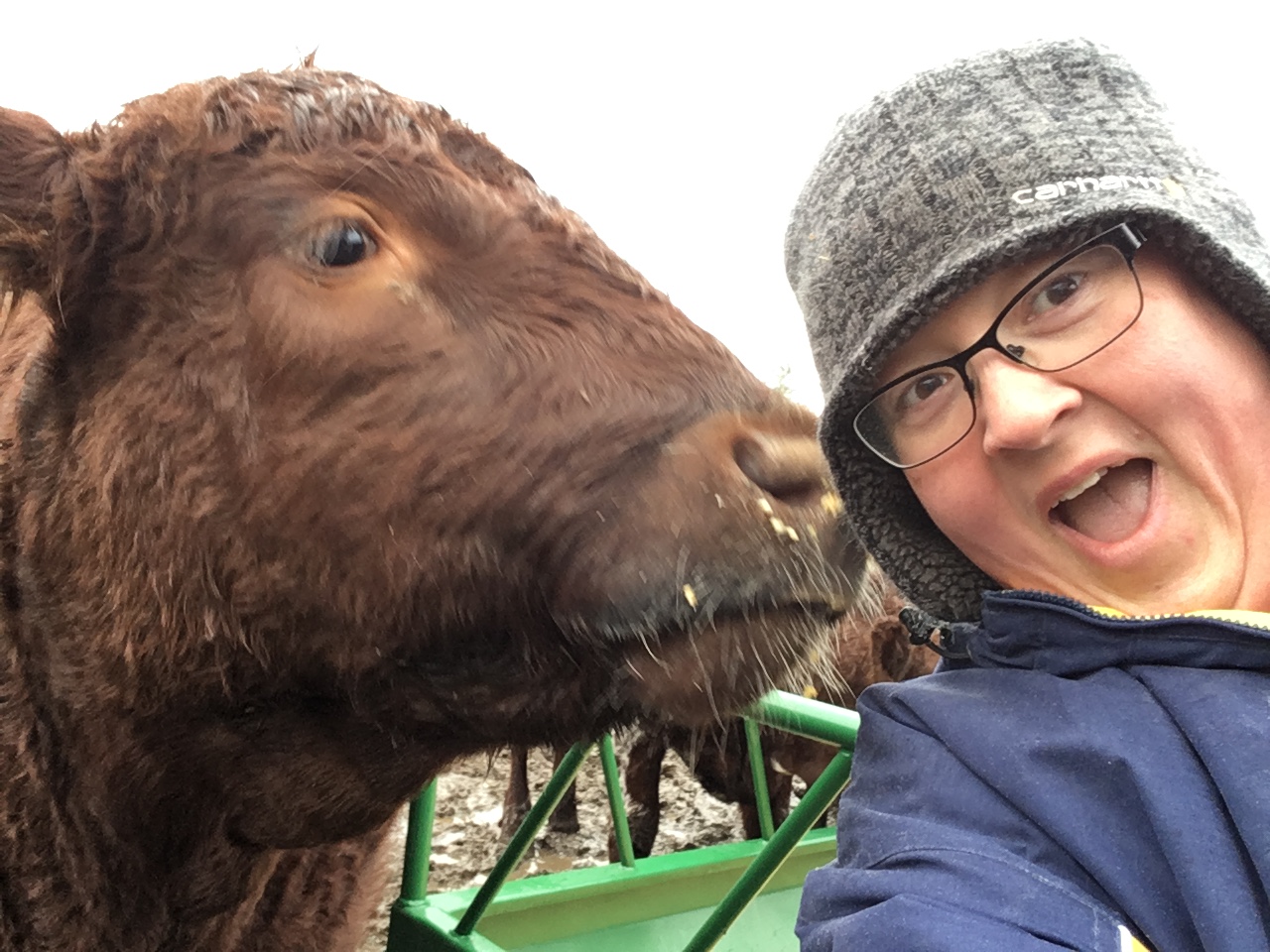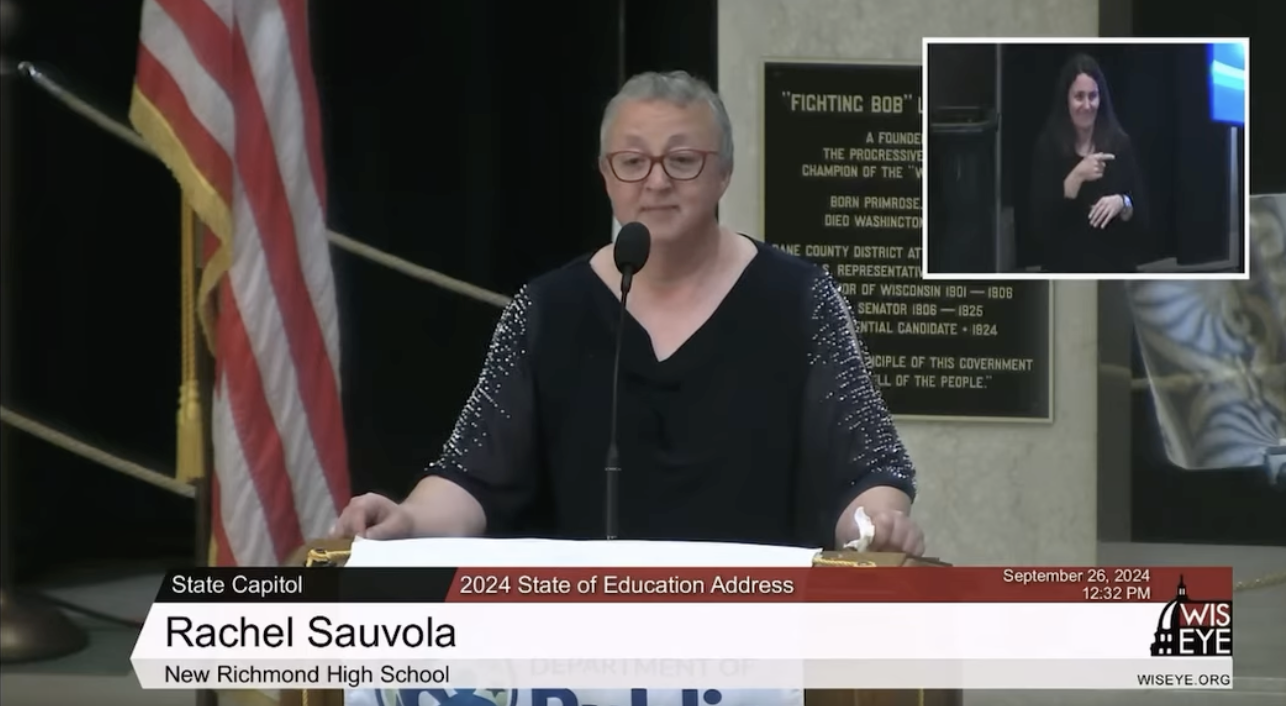Food as Prevention: Growing Healthier Futures Through Farm to School
By Mariane Hernandez, NFSN Communications Intern
Every child deserves the chance to grow, learn, and thrive in a healthy environment. When nourishing food and hands-on food education are woven into the school day, children don't just eat better, they build healthy habits, strengthen curiosity, and gain skills that last a lifetime. Farm to school is public health prevention in practice: they equip young people with the tools to care for their health now, while setting the foundation for healthier futures and stronger communities. Many public health groups, including the Center for Health Law and Policy Innovation, treat food as preventive care, right alongside vaccines and screenings (Center for Health Law and Policy Innovation, 2015).
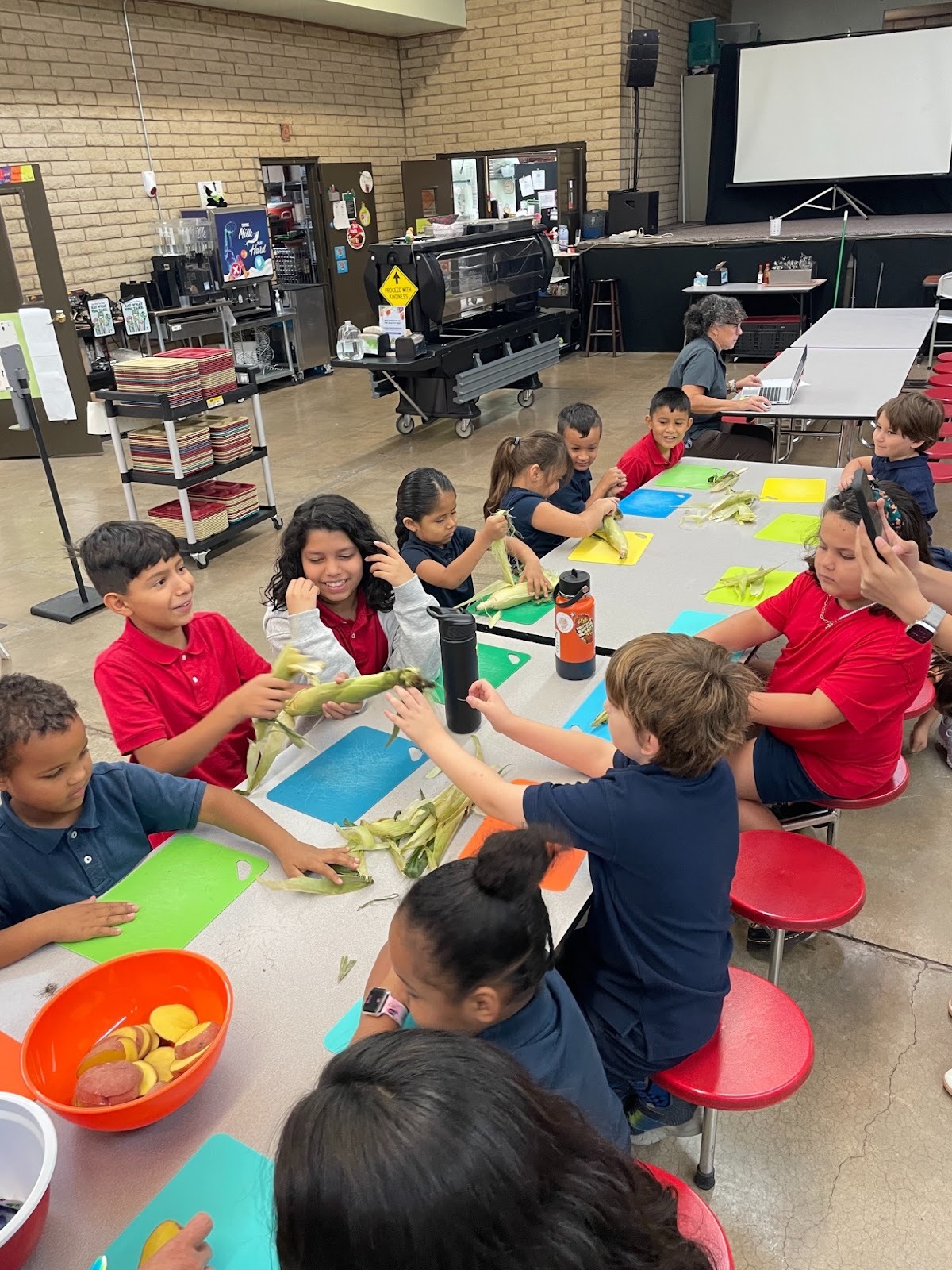
Healthy, Welcoming Spaces
Farm to school programs transform schools into environments where wellness becomes part of everyday life. Participation has been shown to increase students’ fruit and vegetable intake by 1–1.3 servings per day, reduce sugary food consumption, and encourage more physical activity—each meal served and each garden planted representing a small act of prevention (National Farm to School Network, 2020). Teachers consistently notice the difference. When students eat nourishing foods, they are more alert, focused, and ready to learn. Schools that integrate farm to school programming often report better attendance, steadier behavior, and stronger academic performance, proving what we all know—that good food supports learning.
Beyond the cafeteria, these programs cultivate curiosity and joy through school gardens, cooking lessons, and taste tests that connect learning to life. Younger children develop an understanding of where their food comes from, while older students begin to see how nutrition, science, and culture intersect.
Youth Empowerment Through Food
Growing, cooking, and sharing food give students real agency and an understanding that their choices and contributions matter. Research shows that these experiences build confidence, teamwork, and leadership skills that extend far beyond school (JAFSCD, 2025).
In California, FoodWhat?! offers a model for what this looks like in action. The organization’s “FoodWhat Crew” combines farming and cooking with paid job training, emotional support, and leadership development. In 2024, FoodWhat?! worked with 96 youth across 12 schools and distributed more than 6,900 pounds of fresh food. Ninety-four percent of participants said they gained useful job skills; 85% felt more connected to their community; and 75% reported better mental health after working outdoors.
Many alumni stay in the work, managing organic farms, leading kitchen teams, and mentoring younger crews. Their stories show that when young people are given meaningful opportunities, they carry those lessons forward into adulthood, shaping healthier communities from within.
Farm to school programs across the country hold this same promise. These programs invite students to co-create change, growing confidence, curiosity, and care for the people and places that feed them.
Another example of this kind of youth leadership can be found in New Orleans. Grow Dat Youth Farm is a youth-led farm where students don’t just grow food, they build community. Participants talk about the pride of planting and eating what they’ve grown, but the work goes far beyond farming. The program uses an anti-oppression curriculum that encourages youth to understand how issues like food insecurity, food deserts, and systemic inequities shape access to healthy food. For many, it’s their first time having regular access to fresh produce or learning how to cultivate it themselves. The farm has become a space where young people learn, reflect, and organize together across differences, growing both food and shared power.
Public Health in Action: New Mexico Example
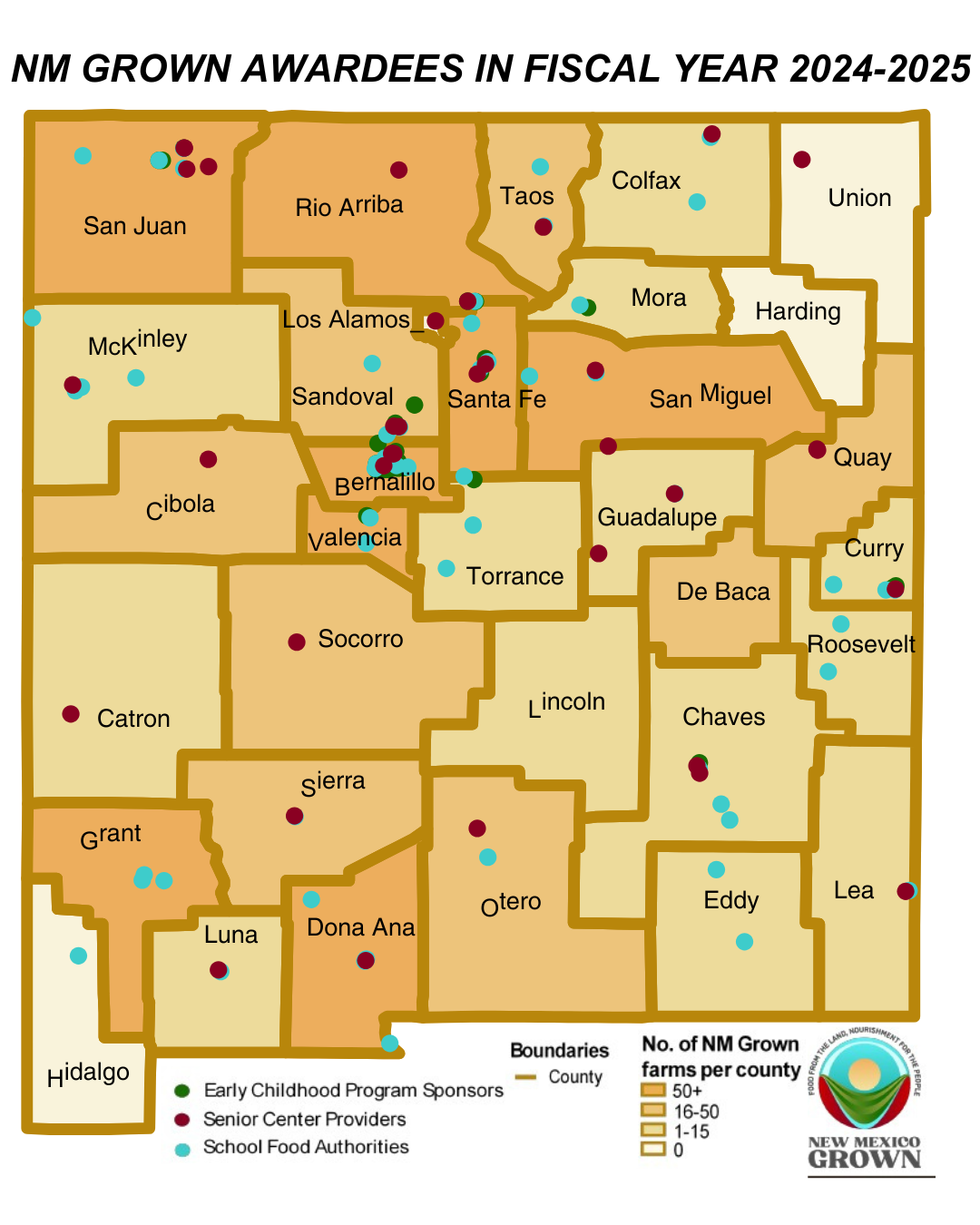
New Mexico Department of Health’s Obesity, Nutrition, and Physical Activity Program (ONAPA) partners with state and local organizations and community coalitions in seven counties and one Tribal community across New Mexico to expand healthy eating and physical activity opportunities where children and adults live, learn, play, work, eat, and shop. In our conversation, Dr. Alexana Hickmott shared how evaluations help tell the story of New Mexico's growing farm to institution movement. “ONAPA partners with the New Mexico Farmers’ Marketing Association on the New Mexico Grown Program, which focuses on farm to institution and integrating locally grown produce into snacks and meals for early childhood programs, school food authorities, and senior center providers. In evaluating the New Mexico Grown’s programmatic reach, we have created a map that helps to visualize and quantify the early childhood programs, school food authorities, and senior center providers that participate in farm to institution around the state of New Mexico,” says Alexana Hickmott, PhD (she/her/ella), Epidemiologist/Evaluator, Nutrition, and Physical Activity Program (ONAPA), New Mexico Department of Health.
We are thrilled to be hosting our farm to school and early care community in-person in Albuquerque, New Mexico, this December—as one of the nine states with a universal school meals policy and a vibrant food culture and heritage, New Mexico is a meaningful location for our 10th National Farm to Cafeteria Conference. Experts like Alexana Hickmott will be joining us as speakers, bringing valuable insights into how programs like New Mexico Grown expands access to fresh, local food for communities.
Cultural Connections and Community Ripple Effects
Food is more than just fuel. It is memory, identity, and community. By procuring food directly from small farmers in the community and investing in elements like scratch cooking and staff training, many farm to school programs around the country are serving culturally diverse meals in the cafeteria. Addressing food insecurity through dignified, culturally relevant meals is central to reducing health disparities and advancing equity (Center for Health Law and Policy Innovation, 2015). When schools commit to serving meals that celebrate their unique student body, they affirm dignity, honor family traditions, and create spaces of belonging.
_Page_01.jpg%2B-%2Bwith%2Bborder.jpg.webp)
Many of National Farm to School Network's Partners are leaders in creating culturally relevant food experiences for students. In Massachusetts, the Tasting History Project in Lowell Public Schools brings immigrant family recipes—like maharagwe, caldo de mariscos, and bombom de travessa—into cafeterias, transforming tradition into shared experience. Roseville Area Schools in Minnesota sources from local farmers to serve delicious meals like pho, pork carnitas, tamarind-glazed chicken, and purple sticky rice.
Programs like the Teaching Kitchen® at Lenox Hill Neighborhood House expand this connection beyond the lunch line. Their bilingual cookbooks and free lesson plans teach students to prepare fresh, seasonal meals from spaghetti squash marinara to blueberry cornmeal muffins, bridging school, home, and culture.
To help schools replicate these successes, Massachusetts Farm to School and FoodCorps developed Serving Up Tradition: A Guide for School Food in Culturally Diverse Communities. It offers strategies, case studies, and recipes such as Chicken Biryani, Pollo Guisado, and Doro Wat, showing how food service teams can celebrate culture while meeting nutrition standards.
From Cafeterias to Communities: Building Health Together
The impact of farm to school doesn’t end when lunch is over. When children bring recipes and stories home, families cook together, taste new ingredients, and start conversations about health. Farmers benefit too—each partnership strengthens local economies by providing producers with market opportunities. For every dollar invested in farm to school, an estimated $0.60 to $2.16 circulates back into local economic activity (National Farm to School Network, 2020).
These programs also nurture community wellness in deeper ways. The Indigenous Food Lab in Minneapolis, a professional kitchen and training hub, works to reintroduce Native foods and food sovereignty into tribal communities across North America. Through traditional agriculture, ethnobotany, and cooking education, the lab reconnects health with heritage.
Together, efforts like these show that farm to school is a powerful and promising nationwide movement restoring the relationship between food, culture, and health. Each garden, each partnership, and each shared meal helps cultivate well-being that reaches far beyond the classroom.
Celebrating Farm to School: A Growing Movement
Food is prevention, empowerment, and connection. Farm to school programs embody all of these values. By supporting them, we invest in healthier habits, empowered youth, stronger families, and resilient communities.
We’re already seeing what’s possible when prevention is prioritized. In California, the state’s 2025–2026 budget invests over $2 billion in school nutrition, including School Meals for All, Farm to School, and Kitchen Infrastructure and Training programs. This historic commitment is reducing food insecurity, expanding access to fresh and locally sourced meals, and strengthening regional food systems (read more here). It’s proof that when we treat food as prevention, policy can fuel healthier futures.
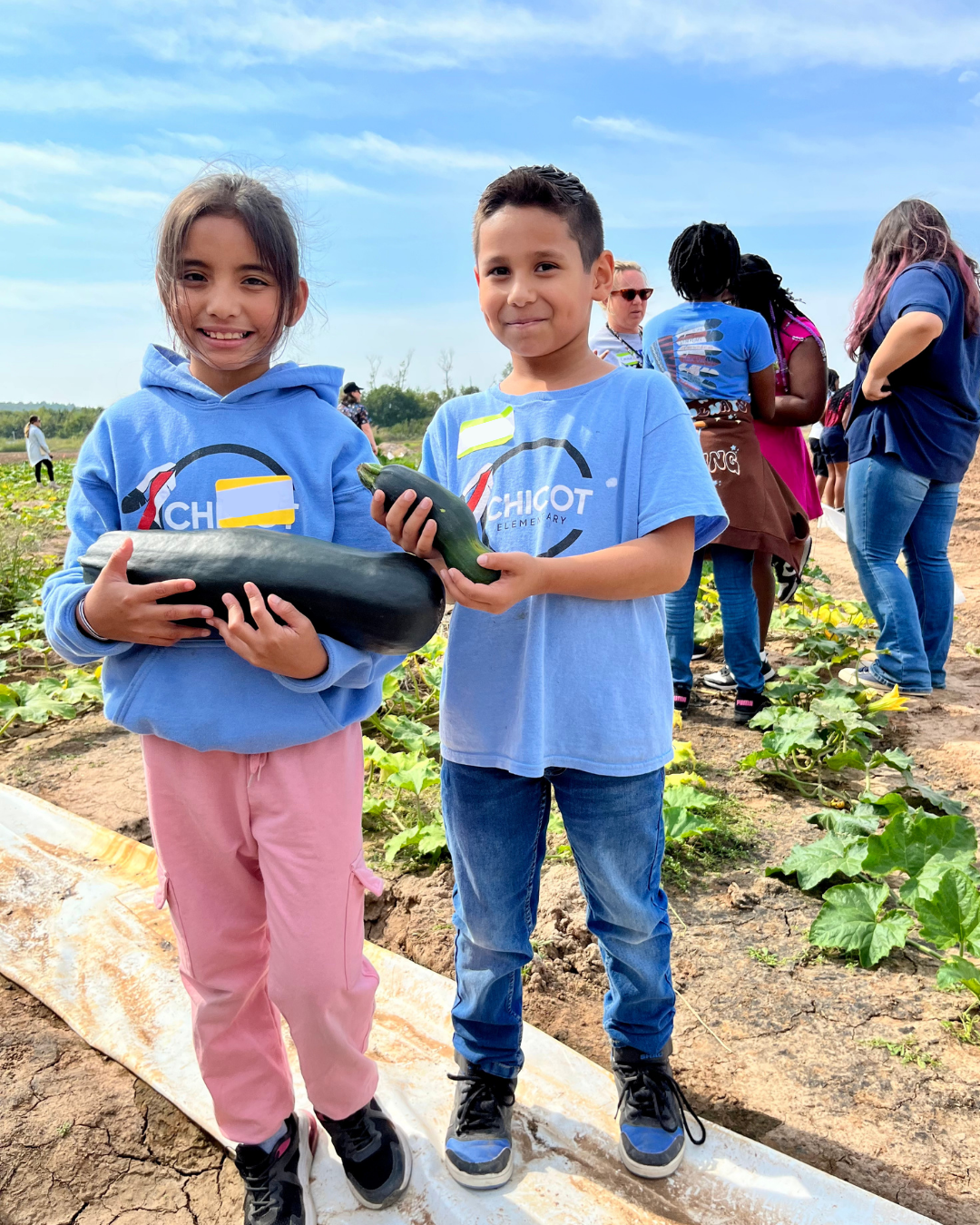
Arkansas offers another strong example of how statewide organizations can drive real change. The Arkansas Hunger Relief Alliance and the Arkansas No Kid Hungry campaign is a network of hundreds of partners working to reduce hunger through school meal expansion, nutrition education, and policy advocacy. Their leadership helped grow Breakfast After the Bell models and their advocacy laid the groundwork for broader statewide commitments like the expansion of universal breakfast, ensuring more children start their day nourished and ready to learn. In February 2025, Governor Sarah Huckabee Sanders signed Senate Bill 59 into law, which guarantees each student free breakfast regardless of income, starting in the 2025/26 school year.
Currently, nine states offer free universal school meals in the U.S.—California, Colorado, Maine, Massachusetts, Michigan, Minnesota, New Mexico, and most recently, New York. These state-wide school meals for all policies are mutually beneficial with farm to school, because it provides school nutrition directors the stable revenue and streamlined administration that lets them focus on building connections with local producers (National Farm to School Network, 2022).
Every October, Farm to School Month brings together the people who make this movement real: students, farmers, families, and educators. Farm to school is proof that prevention doesn’t just happen in clinics. It starts when a child plants a seed, tries a new recipe, or learns the story behind the food on their plate. That’s the power of farm to school. It grows when students learn with their hands, when families see their cultures reflected in the lunch line, and when communities fight for healthier futures together. Farm to School Month reminds us that this movement is built by many hands and fueled by real change on the ground. Whether it’s planting a seed, pushing for better policy, or simply choosing local food, every action adds up. And when we keep showing up collectively, we’re not just serving meals. We’re shaping a healthier, more connected future for every child.
References
Arkansas Hunger Relief Alliance. (2025). Programs & advocacy. https://www.arhungeralliance.org
FoodWhat?! Youth Empowerment Program. (2025). Programs & impact. https://www.foodwhat.org
Grow Dat Youth Farm. (2025). About, programs, and impact. https://www.growdatyouthfarm.org
Journal of Agriculture, Food Systems, and Community Development. (2025). Empowering teens through food justice: Youth leadership in community food systems. Journal of Agriculture, Food Systems, and Community Development.
Lenox Hill Neighborhood House. (n.d.). Teaching Kitchen® lesson plans & bilingual cookbooks.https://www.lenoxhill.org/teaching-kitchen
Massachusetts Farm to School & FoodCorps. (n.d.). Serving up tradition: A guide for school food in culturally diverse communities. https://www.massfarmtoschool.org
National Farm to School Network. (2020). The benefits of farm to school. Farm to School Network. https://www.farmtoschool.org
National Farm to School Network. (2022). Universal Meals Policies Can Strengthen a Just and Resilient Local Food System. https://www.farmtoschool.org/resources-main/universal-meals-policies-can-strengthen-a-just-and-resilient-local-food-system
NĀTIFS (North American Traditional Indigenous Food Systems). (n.d.). Indigenous Food Lab. https://www.natifs.org
New Mexico Department of Health. (2025). Obesity, Nutrition, and Physical Activity (ONAPA) Program.https://www.nmhealth.org

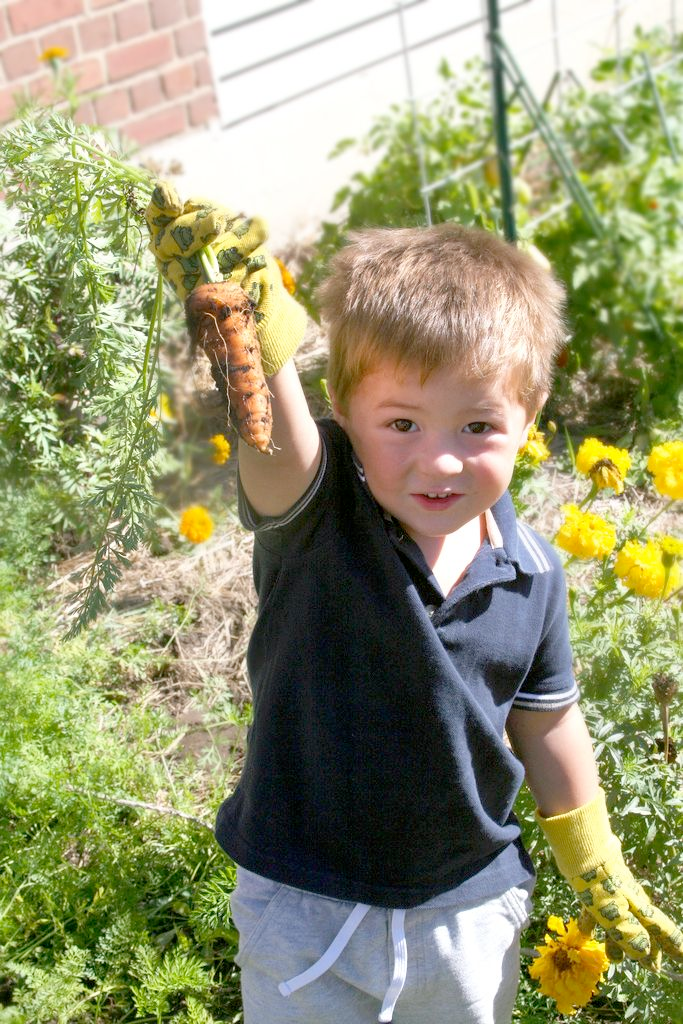
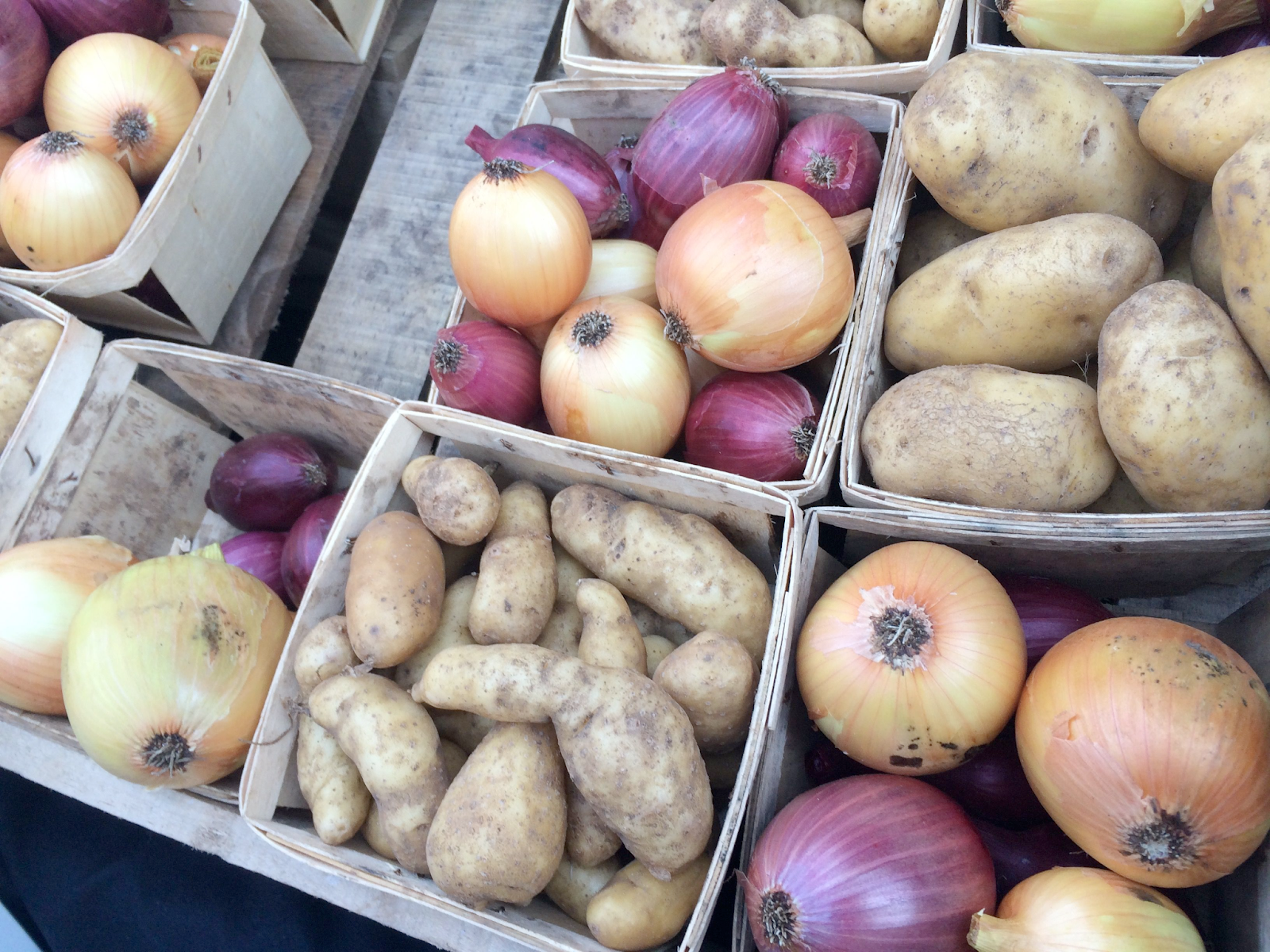

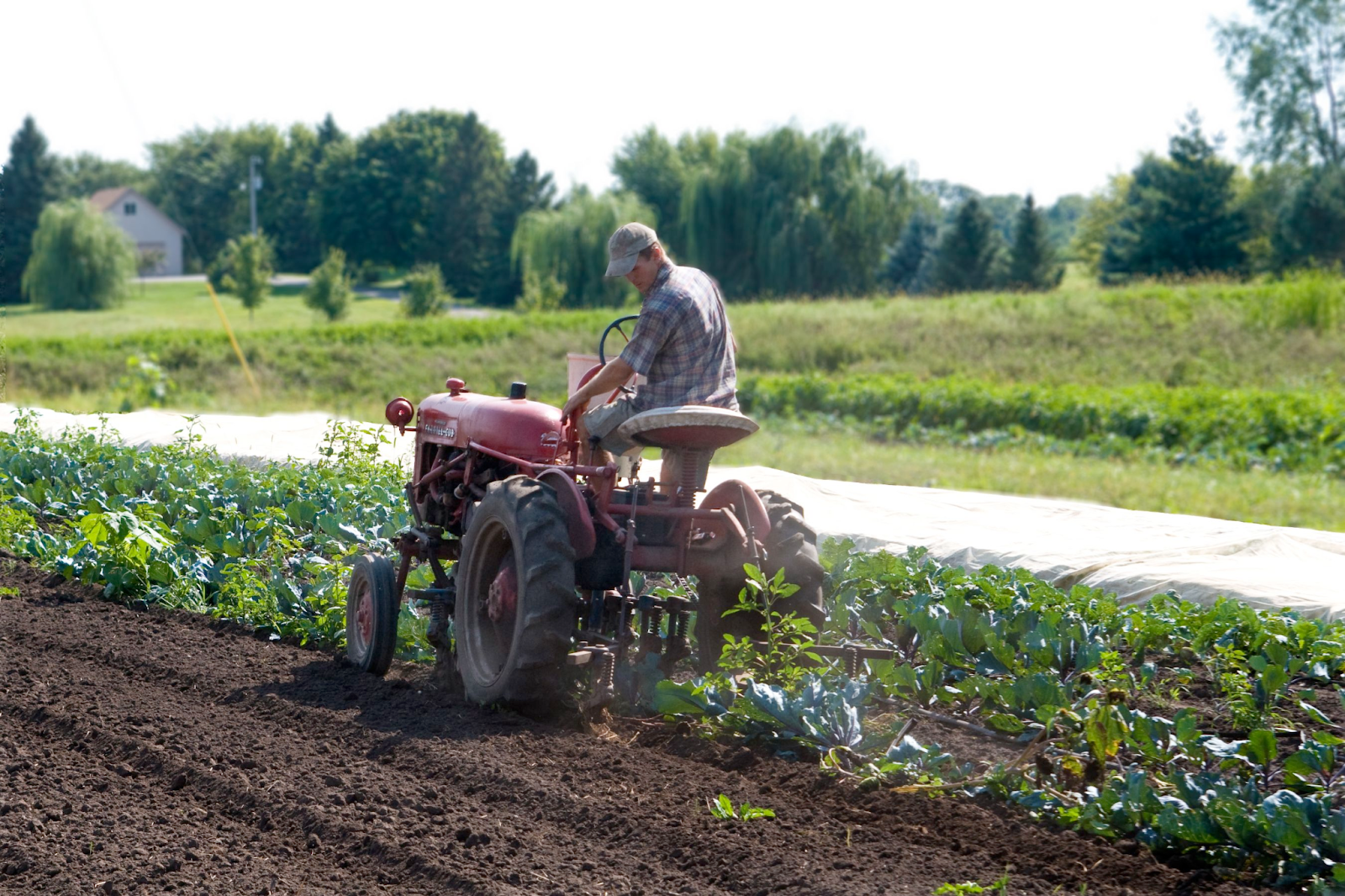
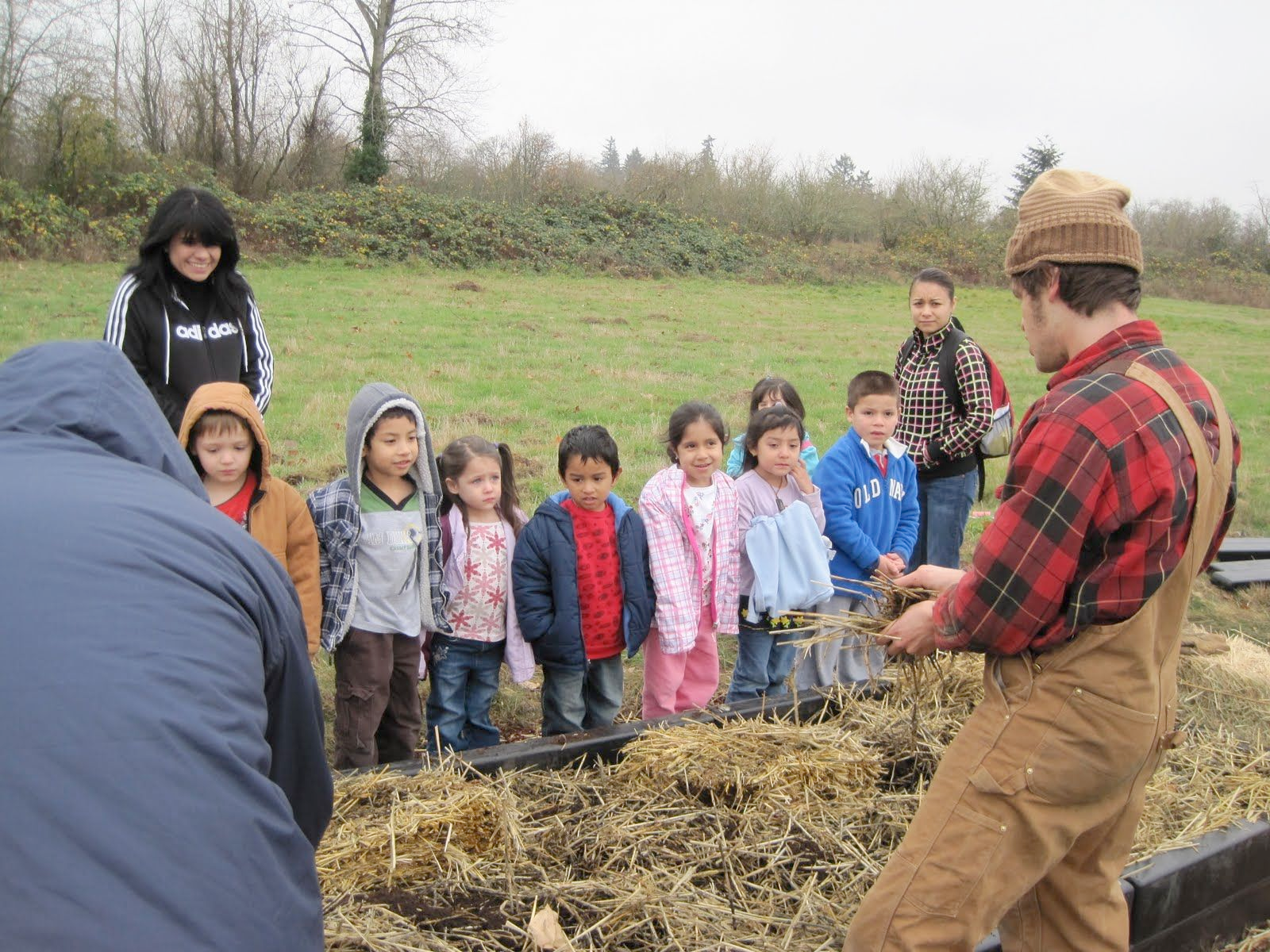


.jpeg)
